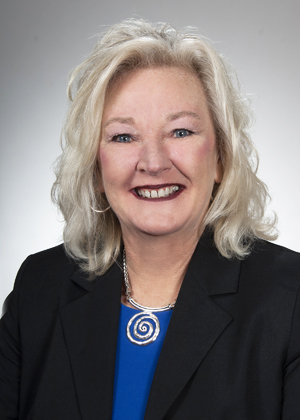
The Truth Staff
State Representative Lisa Sobecki, a Democrat, is making an unusual turn this election cycle. Instead of running for re-election, since she is not term-limited, she has opted to make a run for a seat on the Lucas County Board of Commissioners in an effort to join fellow Democrats Pete Gerken and Tina Skeldon Wozniak – two long-time board members.
Sobecki believes that as a former state representative familiar with the ways of state government in Columbus, she will be well positioned to do more for Lucas County in her new role.
Sobecki particularly feels that she will have the background and ability to “be in the front lines” when the state legislators are grappling with their operating and transportation budgets and can change the usual results of such maneuverings which typically ignore the needs of northwest Ohio.
A perfect example, she says, is the $2 billion in funds from the American Rescue Plan for the state of Ohio that is earmarked for the state Department of Transportation. “How can we benefit?” she asks.
In general, Ohio has an infrastructure problem that has built up after decades of neglect – and it is worse in northwest Ohio, says Sobecki, than in most parts of the state.
As she contemplates a victory on Election Day and then assuming duties in the Commissioners’ office, Sobecki speaks of several tasks that will command her attention.
The county needs a strategic plan, something that has never been drawn up, she says. “We need a foot print where we are going to go – in five to 10 years.” Such a plan, which she has experience drawing up when she served on the Toledo Board of Education, would involve both an examination of internal operations such as a physical analysis of services and buildings and of external operations such as workforce and economic development.
That would entail a look at problems in different sectors. “We have to have a focus – and look at rebranding and retooling.”
One area of concern, she says, that involves infrastructure and that lack of focus, is the fact that building a new jail – discussed for about 10 years – still has not been accomplished. “We need to stop talking and get it built because cost has doubled over time.”
Her background, she adds, includes time on the school board when 44 schools were built and two – Scott and Waite high schools – were remodeled. “Under budget and on time,” she says, while also giving ample consideration for the inclusion of minority and women-owned contractors.
Another task she looks forward to taking on is overcoming the shortage of workers in the county. She envisions applying for a waiver from the federal and state governments “so we can do what small counties, such as Allen County, have done and get people off the benefit cliff.”
The “benefits cliffs” refers to the tipping point for low-income individuals and families who find that it is financially challenging to earn too much money if it precludes them from retaining government assistance or benefits. Too many such individuals are lost to the job force
According to Emily Campbell, associate director and Williamson Family Fellow for Applied Research, in her research paper, “Policy Change Can Reduce Benefits Cliffs and incentivize Work,” it is possible to bring such individuals back into the workforce with proper state programming:
“Ohio has taken some steps which can minimize or address benefit cliffs. The most deliberate is the ‘Benefit Bridge’ pilot included in Ohio’s recently passed biennial budget. The Benefit Bridge enables six counties’ departments of Job and Family Services to test approaches to minimize the impact of benefits cliffs. It is largely based on the success of efforts in Allen County, which paired TANF Prevention, Retention, and Contingency (PRC) supports with job coaching assistance and financial incentives benchmarked to employment goals for a limited number of TANF participants. It also included subsidized employment. The identified pilot counties are Allen, Fairfield, Hamilton, Licking, Meigs, and Stark. Many features of the pilot align with solutions other states have enacted.”
“We have a lot of needs here that don’t get recognized down in Columbus,” she adds. “And we need to have a stronger voice and my background will make a difference.”
